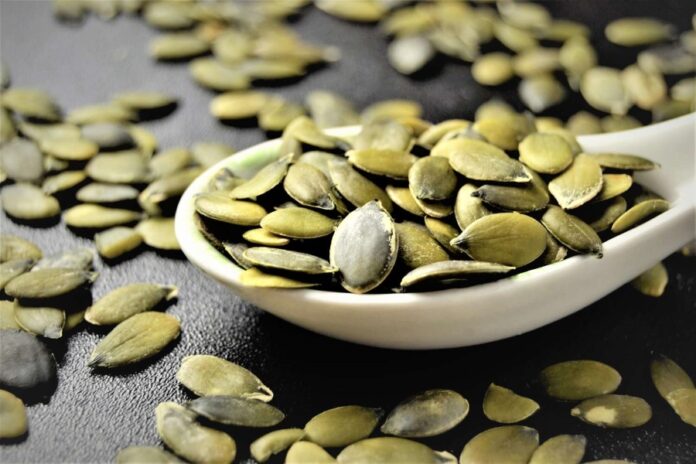Illustrative Image: Egusi Melon Seed Oil Improves Cholesterol and Heart Health: Study on Cardioprotective Benefits and Nutritional Potential
Image Source & Credit: Health
Ownership and Usage Policy
A recent study by Omozuwa et al. (2025) titled “THE EFFECT OF MELON (Citrilus colocynthis) SEED OIL ON LIPID PROFILE AND HAEMATOLOGY INDICES IN WISTAR RAT” published in Open Journal of Bioscience Research reveals that Egusi melon seed oil produced a marked reduction in harmful blood lipids.
“
Egusi melon seed oil significantly reduces total cholesterol, LDL, and triglycerides, offering cardioprotective benefits without affecting hematological health.
-Omozuwa et al. 2025
This study explored the impact of Egusi melon (Citrilus colocynthis) seed oil, a traditional West African ingredient, on lipid metabolism and blood health in Wistar rats. The authors aimed to determine how the oil influenced lipid profile markers—total cholesterol, triglycerides, low-density lipoprotein (LDL), and high-density lipoprotein (HDL)—as well as hematological indices such as red and white blood cells, hemoglobin, and platelets. The findings revealed that Egusi melon seed oil produced a marked reduction in harmful blood lipids. Specifically, it significantly lowered total cholesterol and showed the strongest LDL-lowering effect compared to all other groups, while also reducing triglyceride levels alongside olive oil. However, HDL levels remained unchanged across treatments. In contrast, hematological parameters were largely unaffected, suggesting the oil’s primary action is on lipid metabolism rather than blood cell function. These results highlight the cardioprotective potential of Egusi melon seed oil, positioning it as a natural dietary alternative for individuals at risk of cardiovascular disease or lipid metabolism disorders. Given its widespread use in West African cuisine, particularly in soups, the study provides scientific support for the traditional consumption of Egusi while uncovering possible therapeutic benefits beyond its culinary role.
How the Study was Conducted
The study employed a controlled animal experiment to investigate the effects of Egusi melon (Citrilus colocynthis) seed oil on lipid profile and hematological parameters. A total of 16 healthy Wistar rats were randomly assigned into four groups (A–D), with each group comprising four rats. The experimental period lasted 28 days, during which the animals received daily treatments. Group A served as the control and was given distilled water, while Group B received Egusi melon seed oil. For comparison, Group C was treated with palm oil (Elaeis guineensis), and Group D was administered olive oil (Olea europaea). All treatments were administered orally in carefully measured doses. At the end of the 28-day period, blood samples were collected from the animals via cardiac puncture under anesthesia. The samples were analyzed using standard biochemical and hematological assays to determine lipid profile parameters—total cholesterol, triglycerides, LDL, and HDL—as well as hematological indices including hemoglobin concentration, red blood cell count, white blood cell count, and platelet levels. This structured design allowed the researchers to directly compare the physiological effects of Egusi melon seed oil with those of commonly consumed oils and a control group.
What the Authors Found
The study demonstrated that Egusi melon seed oil (Citrilus colocynthis) exerted notable cardioprotective effects in Wistar rats by improving lipid profiles without adversely affecting blood health. Rats treated with Egusi oil showed significantly reduced total cholesterol and LDL (“bad” cholesterol) levels, with the strongest reduction observed in LDL compared to distilled water, palm oil, or olive oil groups. Triglyceride levels were also lowered, with Egusi oil proving more effective than olive oil. Meanwhile, HDL (“good” cholesterol) remained unchanged across all groups. Importantly, hematological parameters—including red and white blood cell counts, hemoglobin, and platelets—showed no significant differences, indicating that the oil did not impair blood function.
These findings highlight Egusi melon seed oil as a promising natural agent for cholesterol management and cardiovascular protection. Beyond its culinary role in West African diets, it may hold therapeutic potential in supporting heart health through improved lipid metabolism.
Why is this important
Cultural and Scientific Bridge
Egusi melon seeds, a staple in West African cuisine, are now scientifically validated as a potential functional food, showing benefits that extend beyond their traditional culinary value.
Cardiovascular Benefits
Egusi oil significantly lowers LDL cholesterol and triglycerides, positioning it as a natural, accessible option for supporting heart health and reducing cardiovascular risk.
Public Health Relevance
As a healthier alternative to palm oil, Egusi oil could play a role in preventing or managing lipid disorders, particularly in low-resource settings where affordable dietary interventions are critical.
Scientific Advancement
The study contributes to research on functional foods, highlighting the need to investigate Egusi oil’s bioactive compounds and its potential applications in therapeutic nutrition and supplements.
What the Authors Recommended
- The authors emphasize conducting larger studies, including human trials, to confirm the lipid-lowering and cardioprotective effects of Egusi melon seed oil and clarify its underlying biochemical mechanisms.
- The study advocates positioning egusi oil as a functional food or nutraceutical, particularly in regions with high cardiovascular disease burdens and limited access to conventional therapies.
- In addition, compare egusi oil with other plant-based oils and explore its application in heart-healthy food products, dietary guidelines, and global wellness markets, while elevating indigenous crops.
In conclusion, the study by Omozuwa et al. (2025) provides compelling evidence that Egusi melon seed oil offers significant cardioprotective benefits by lowering harmful blood lipids without negatively impacting hematological health. Its demonstrated ability to reduce total cholesterol, LDL, and triglycerides underscores its potential as a functional food and natural alternative for managing cardiovascular risk. Rooted in West African tradition yet supported by modern science, Egusi oil bridges cultural heritage with therapeutic promise, warranting further exploration in larger studies and human trials to unlock its full role in nutrition, wellness, and global health.
















 The African Research (AR) Index is a comprehensive scholarly directory and database focused explicitly on journal publishers that publish and disseminate African research.
The African Research (AR) Index is a comprehensive scholarly directory and database focused explicitly on journal publishers that publish and disseminate African research.

